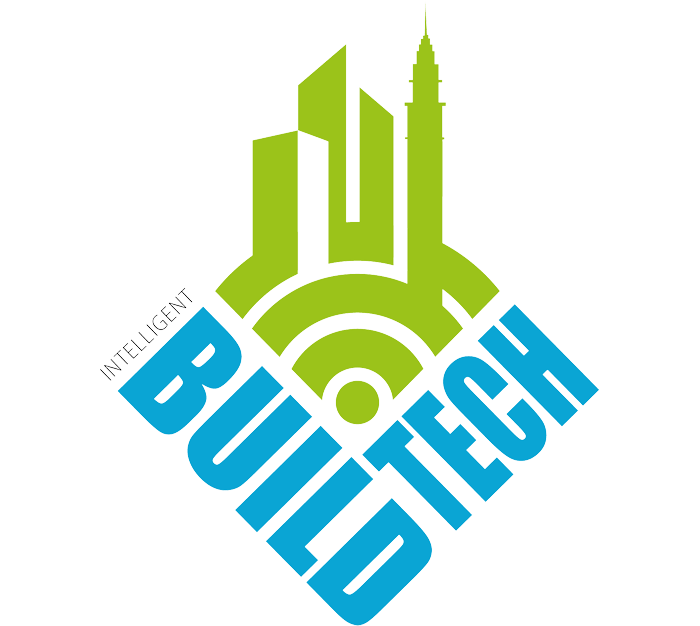BIM and GIS integration have significantly influenced the face of the construction industry. From being quick to embrace technology, adapting to changing times and investing in digitalisation, supply chain control and safety technology, tasks need to be approached differently. In this article, Brandon Oliveri-O’Connor, Vice President of EMEA at Procore Technologies, details the primary challenges the construction industry is facing today, some common risks and innovation opportunities that help companies achieve success in this evolving landscape.

What are some primary challenges confronting the construction industry?
Today there is a high level of uncertainty around world events, supply chain issues, inflation volatility and growing labour shortages. This leaves many construction businesses vulnerable to factors outside their control and makes it harder to deliver the results they want. Complicating matters is the growing pressure to deliver on ambitious sustainability goals set by the government. The UK’s built environment is responsible for approximately 25% of total UK greenhouse gas emissions. It is a sector key to the UK’s path to net zero. We, as an industry, need to step up our efforts if targets are to be met.
What are the effects of poor management and construction planning and how does it affect cost overruns and safety hazards within a project?
Construction is a complex business with hundreds of interconnected decisions impacting its output. One of the major issues that holds the sector back is outdated information. People at any level could be making their decisions on the basis of outdated information. For example, boardroom executives may only learn afterwards about increased material costs or a significant amount of rework on a project and people on site could be working off outdated drawings or getting delayed because the wrong materials had been supplied. Mistakes like this can cost hundreds of thousands of pounds in rework and project delays. This is why it is so important to digitise the business and facilitate real-time information flow through construction management software. We have seen first-hand when working with many Procore customers how becoming more data-driven can reduce rework, waste, improve margins and overall project outcomes.
In enhancing short and long-term planning within construction projects, what measures can be implemented?
The construction industry is undergoing radical change. It is moving away from siloed and linear processes with limited numbers of stakeholders at each stage, to a more dynamic and iterative process with a complex matrix of stakeholders, ranging from owners to material suppliers, all of whom need to keep abreast with real-time updates.
This is where construction management platforms come into their own. They are designed to manage projects to a high standard from pre-construction planning through to handover.
A construction management platform like Procore connects everyone in one place. It follows the new and ever-changing dynamics of projects, making the right data available to the right people at the right time. This is made possible because, with their subscription, a company gets unlimited users, data and support from Procore. The historical data that platforms like Procore capture can highlight behaviours or trends that can improve planning for future projects. This results in greater business predictability and therefore greater efficiency for every project that follows.
Post-COVID, the construction sector is regarded as one of the backbones of the economy that will give other sectors a boost. What strategies can construction companies employ to prosper in this evolving landscape?
I believe that despite the headwinds and obvious challenges today, we in construction have reason to remain confident. It has always been an extremely resilient sector and one that has proved capable of building through recessions, wars and pandemics. Very few sectors can say that. What increases my confidence today is that we have technology on our side to improve our work efficiency, the quality of our decisions and business results in general. Digitising their business to gather data and insight into what works for particular types of projects should be front of mind for business leaders. This will translate into even greater resilience overall.
Every day we see impactful ways in which the Procore platform helps with big and small tasks. From quickly moving construction materials depending on the changing weather conditions, to timely approvals that help in avoiding delays. We have customers who track snags throughout the course of the project, allowing them to always keep their finger on the pulse. This helps to avoid surprises at the end. Everything becomes more predictable and less of a surprise when you develop standardised practices and processes supported by technology that people use every day.
Procore’s ease of use and 24-hour real-human workforce support is something our clients cite as a major reason why they choose to work with us and adopt this new technology. The more predictable and efficient the sector becomes, the less rework and waste in the entire process. Increased profitability and resilience will ensure we can continue building and evolving our economy and society. Doing so more safely for all and to stricter standards.
Procore’s ‘How We Build Now’ 2023 benchmark report revealed some interesting insights from the UK and Ireland’s construction leaders. What are the most important of these revelations and what valuable lessons emerge from them?
The ‘How We Build Now’ report revealed the resilience of the construction industry, with four out of 10 respondents being ‘very confident’ and five out of 10 ‘somewhat confident’ in the coming year. Construction firms said that business productivity would be most improved through:
- Implementing best practice processes and protocols in pre-construction
- Building employee engagement
- Staff having the ability to work remotely from the site
If you look broadly at these improvements, construction management technology can facilitate all of them. We have heard from one of our customers just recently how the Procore solution helped them centralise, organise and standardise documentation and processes. Now everyone is aligned from the start and this phase becomes the catalyst for success.
We have also seen that easy-to-use, mobile-friendly software improves employee engagement and increases everyone’s productivity through timely communication. It also allows people to easily access documentation and communicate remotely, even when away from the site. There has never been a stronger case for industry digitisation and we are excited to see what opportunities the speed of Digital Transformation opens up for the future.
How important is data analysis to construction projects and how does Procore contribute to helping construction owners and tier 1 contractors with real-time transparency and visibility to make informed and data-centric decisions?
A construction management platform is one single source of truth. It connects stakeholders, processes and data, owners and contractors, to drive improvements across a project’s life cycle in a transparent and collaborative manner. By integrating data, project managers can ensure the right person is in the right place at the right time with the right information, materials and equipment to do the job right and safely.
With the data it accumulates over time, a platform like Procore can help realise a company’s potential and create opportunities for operational excellence and optimise business resources at scale. Data and real-time analytics also empower you to reduce risks and be more agile as each situation demands. The greater visibility into performance across all your projects can help save increasingly valuable hours and money by anticipating risks and mitigating them before they become problems on the ground.
In what ways does Procore’s construction management platform empower owners, main contractors and sub-contractors to assert control over construction outcomes, positioning itself not merely as a provider but as a collaborative partner?
We strive to be genuine partners in our customer’s Digital Transformation journey. One of our customers who acts as both owner and tier 1 contractor has been with us for five years. They are consistently growing the number of projects they manage with Procore, which is significantly scaling up their business. During these years they have leaned heavily on our human 24-hour support. They have also used a lot of our consulting services to help mature their own culture and train their workforce for success.
Through these five years they have seen junior people enter the business, gain valuable digital skills with Procore, move to senior roles and add more value to the team. This illustrates that the value of digitisation lies not just in direct project-related savings, reduced risk and increased efficiency, it is also about your people, company culture and how they benefit from the transparency, speed and agility the construction management platform brings. Thanks to standardisation within the platform, knowledge transfer is easier and cohesive operations that become more resilient in the face of change are built.
It is also worth noting that Digital Transformation helps the company become more attractive to digital-native talent and more inclusive through casting a wider net. Enhanced standardisation via technology can lower the barrier to entry into construction from other sectors and offer an opportunity to attract talent with diverse backgrounds and skillset. This will aid the competitiveness of your company in a rapidly changing business environment.
What is the future of the construction industry in 2024 and beyond?
The future remains bright for the industry, but this also depends on how we navigate the current storm. For business leaders, now is the time to take a birds-eye view of how you operate and see what you want to do better in 2024 and beyond. There is no doubt that we will see more industry-wide data, better predictability, greater levels of automation and other new developments. This will require the application of more human brain power geared toward solving the complex issues that software cannot. Personally, I want to see more diverse talent in construction and people leading better and balanced lives. Technology can help in all these areas if we take advantage of it today.




